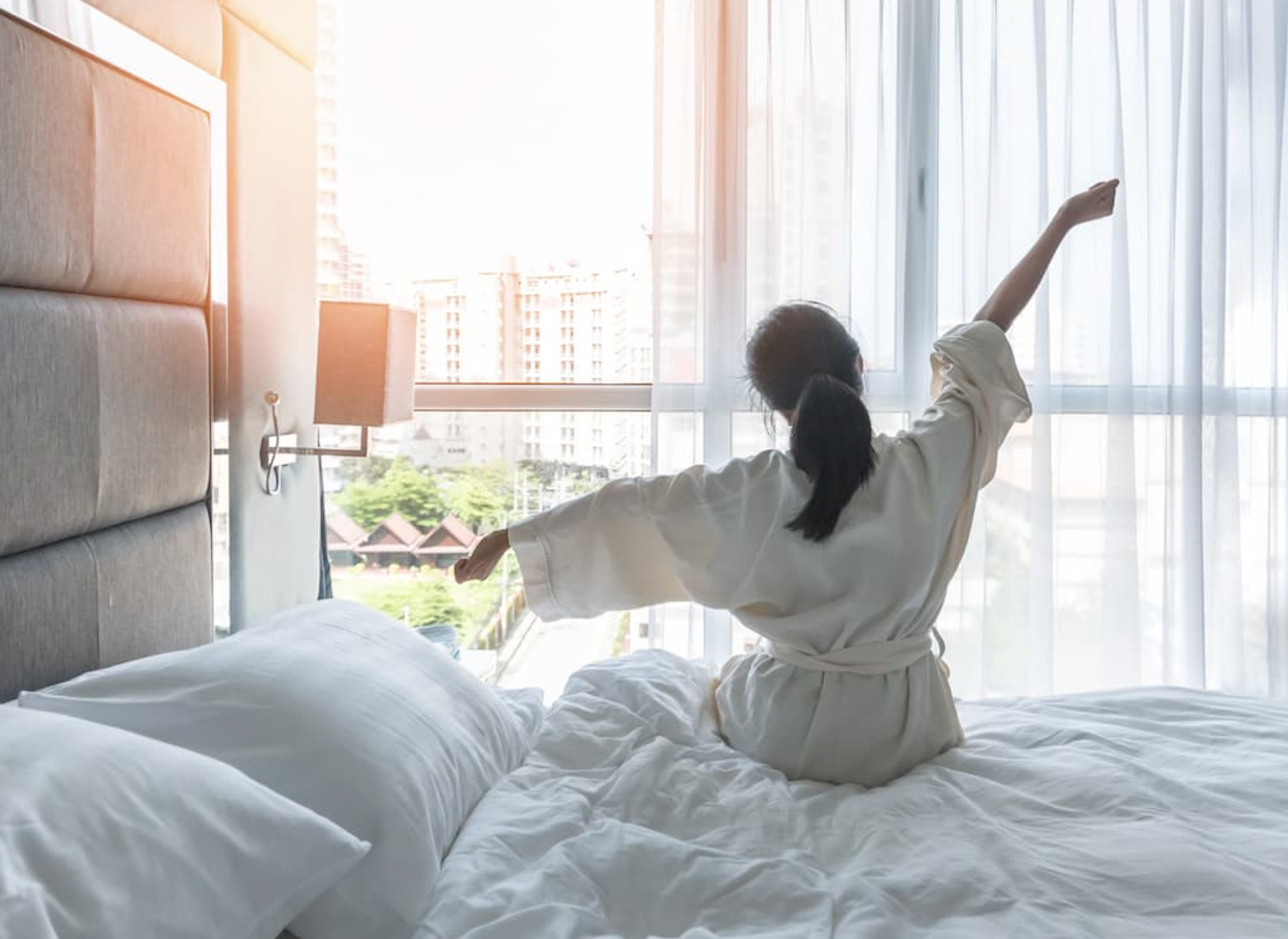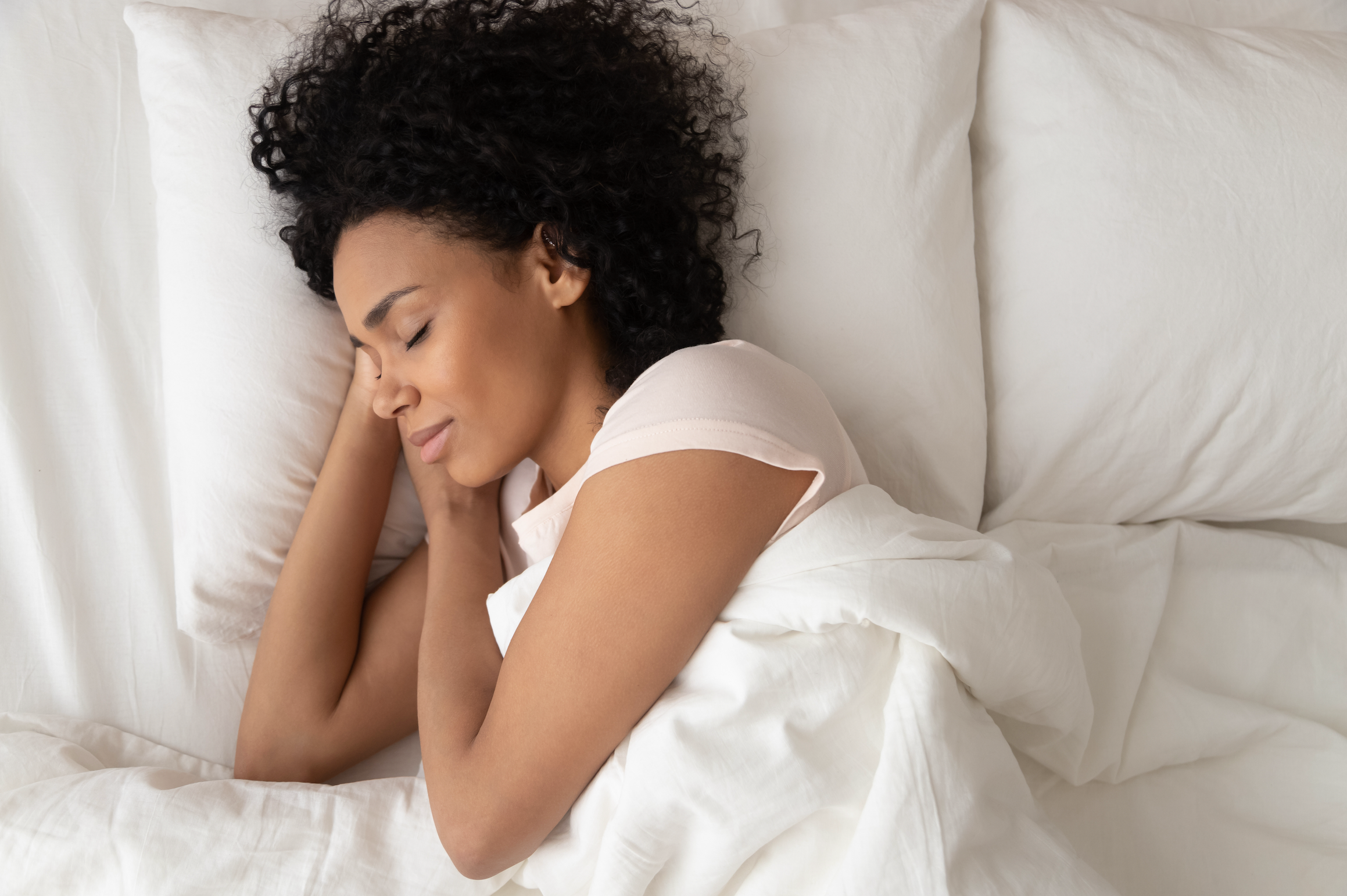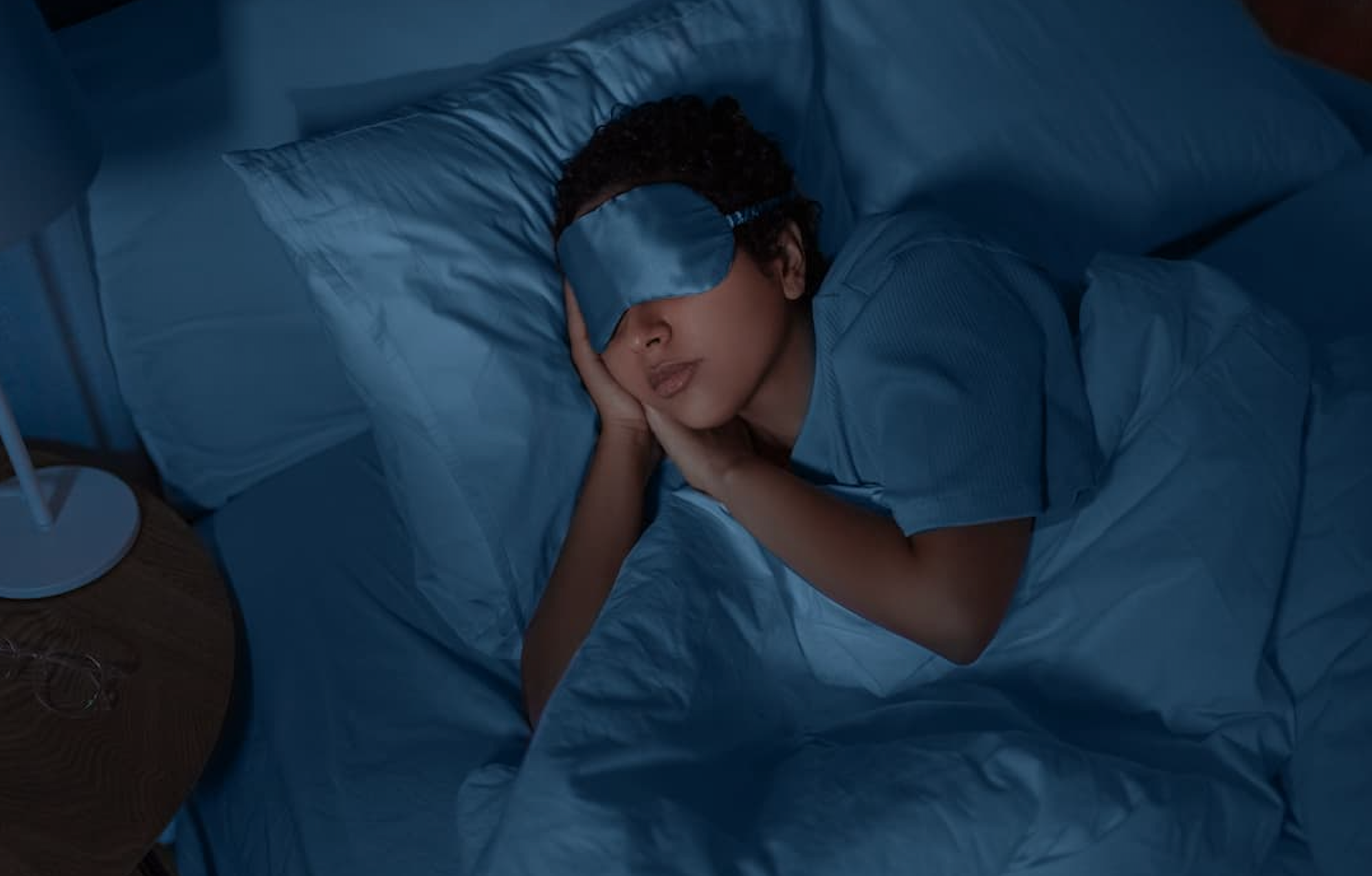
How to Sleep Better This Summer, With Carleara Weiss, Ph.D., MS, RN
Alcohol, late dinners and light exposure are summer sleep saboteurs — Carleara Weiss, Ph.D., MS, RN, explains how to fight back.
By
Lana Pine| Published on July 29, 2025
4 min read
Summer’s longer days and warmer nights might seem ideal, but they can wreak havoc on your sleep. According to Carleara Weiss, Ph.D., MS, RN, sleep science adviser at Aeroflow, everything from extra daylight to late-night dinners and vacation travel can throw your sleep schedule into disarray. Understanding how seasonal changes affect your internal clock (and taking a few simple steps) can help you rest easier all summer long.
Let’s start with the basics — why is summer such a tricky time for sleep?
Carleara Weiss, Ph.D., MS, RN: Along with the typical changes in social schedules that cause us to sleep later, there are two physiological reasons for sleep difficulties during the summer. The first one is the “long photoperiod,” or longer days with longer periods of sunlight, which directly impact the biological clock. Our biological clock uses environmental light to determine when it is day or night and regulates hormones, including melatonin. Longer photoperiods delay melatonin release and cause sleep to start later. The second physiological reason is the increased temperature, which leads to a higher body temperature. We need a natural drop in temperature to fall asleep, so a warmer environment makes it harder to do so.
Can late-night dinners, barbecues or snacking affect sleep quality?
CW: Yes. Digesting food later at night disturbs the sleep-wake cycle because it increases body temperature, redirects blood flow to the digestive system, increases the risk of reflux and reduces the amount of time spent on REM sleep. All these problems contribute to poor sleep quality, multiple nighttime awakenings and difficulty falling asleep or staying asleep.
Many people drink more alcohol in the summer — at parties, on patios, etc. How does alcohol interfere with sleep?
CW: Alcohol alters sleep architecture, specifically the transitions between sleep stages. Alcohol makes sleep more fragmented, causing multiple nighttime awakenings to use the restroom (diuretic effect), reducing the time spent on REM sleep, reducing the natural production of melatonin, and increasing the risk for snoring or experiencing sleep apnea.
How can we protect our sleep when traveling?
CW: Three important factors to sleep better when traveling include, first, adjusting the sleep schedule to prioritize proper sleep and quality. We tend to sleep fewer hours while on vacation, so these tips are often overlooked, especially when traveling through different time zones. Second, limit caffeine and alcohol intake to allow your body to properly digest these before bedtime. Third, stay hydrated and eat healthy, nutritious meals to keep your body nourished through the travel transitions.
Can you share some practical tips or a basic bedtime routine to help people get better sleep during the summer months?
CW: Sticking to a regular sleep schedule is a crucial first step; maintain a bedtime routine, even if it’s bright outside your window. Use blackout curtains or a sleep mask to block sunlight at bedtime and in the early morning hours. A relaxing and sleep-friendly bedtime should include a warm bath or shower, reduced exposure to screens from TV, smartphones and other electronic devices, and time for relaxation with meditation, prayer or breathing exercises. Maintaining a sleep environment temperature of around 65 to 68 F (some individuals may require up to 70 F to feel comfortable) is crucial for maintaining a low body temperature during sleep. Lastly, reduce caffeine and alcohol intake close to bedtime.
When should someone seek medical advice for sleep issues? What signs suggest it’s more than just “seasonal” trouble?
CW: Seek medical advice if you are experiencing severe daytime sleepiness and fatigue, brain fog, difficulty concentrating, irritability or anxiety, or persistent difficulty falling asleep or staying asleep. These symptoms may indicate an underlying sleep disorder that is more than a seasonal issue.

